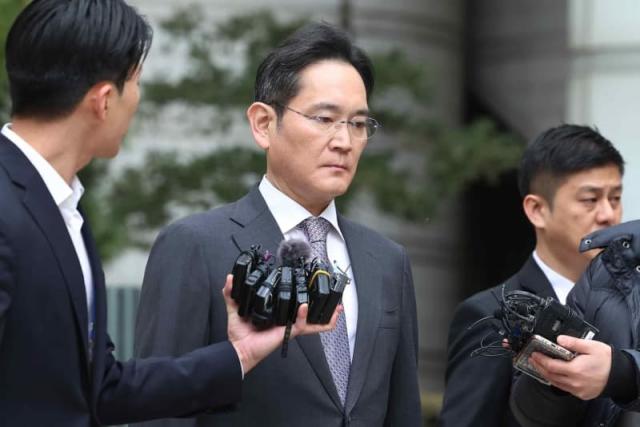After a protracted legal dispute that has engulfed South Korea for years, Lee Jae-yong, the vice chairman and presumed heir of Samsung Group, left South Korean court on Monday with victory.
The litigation was In relation to a 2015 merger that was viewed as a crucial step towards Lee’s accession to the company’s top position.
The Seoul High Court cleared Lee on Monday of allegations of accounting fraud and stock price manipulation. The court ruled that there was insufficient proof to support the claim that Lee and other Samsung executives purposefully misrepresented Samsung C&T and Cheil Industries’ values in order to support the merger. The merger was ruled by the court to be a legitimate commercial choice rather than a plot to give Lee more authority.
Lee was facing a five-year prison sentence and a punishment of 500 million won ($375,000) if found guilty, thus the verdict was a startling turn of events for him. According to NPR, Lee did not talk to the reporters as he left the court. Lee has maintained his innocence throughout the trial.
Read also: Samsung Plans to make Semiconductor chips more Efficient
Future Plans and Implications
With his leadership and inheritance of Samsung, which contributes over 20% of South Korea’s GDP and is a world leader in smartphones, TVs, semiconductors, and other electronics, Lee had been involved in a number of legal disputes, which came to a stop with his acquittal. After serving around half of his 30-month sentence, Lee was freed on parole in 2021. Lee had previously been found guilty of paying former President Park Geun-hye and her confidante Choi Soon-sil in order to obtain government backing for the merger. On a national holiday in 2022, President Yoon Suk Yeol also granted him a pardon. This came amid demands that he return to management in order to foster innovation and the nation’s economy.
Bloomberg estimates Lee’s net worth at $9.9 billion. He has pledged to enhance Samsung’s corporate governance and social responsibility, as well as to contribute a significant amount of his wealth to philanthropic organisations. In keeping with the tradition of family succession that has defined South Korea’s chaebols, or family-run businesses, he has also promised not to transfer the managerial powers to his offspring.
Other tech disputes in South Korea
Hyundai Motor Group: The Hyundai Motor Group, comprising Hyundai Motor and Kia Motors, is the world’s fifth-largest automaker and the second-largest chaebol in South Korea. Due to problems with quality, safety, and the environment, the company has been involved in a number of controversies and legal actions. Some of these incidents include inflating the fuel efficiency of its cars, hiding flaws that led to engine fires, and manipulating emissions statistics. Along with its chairman Chung Mong-koo and his son Chung Eui-sun, the group has also been accused of embezzlement, tax evasion, and corruption.
The SK Group is a prominent player in the semiconductor, energy, and telecommunications industries. It is the third-largest chaebol in South Korea and comprises SK Telecom, SK Hynix, and SK Innovation. Due to its commercial actions, including price-fixing collusion with other telecom providers, breaking Iranian sanctions, and stealing trade secrets from LG Chem, the group has been embroiled in a number of court battles and investigations. Additionally found guilty of embezzling billions of won from the group’s subsidiaries are the former chairman of the organisation, Chey Tae-won, and his brother, Chey Jae-won.Three.
The Lotte Group is a diverse conglomerate that operates in the retail, food, hospitality, and entertainment sectors. It is the fifth-largest chaebol in South Korea and comprises the companies Lotte Shopping, Lotte Chemical, and Lotte Confectionery. A bitter family feud over the group’s founder Shin Kyuk-ho’s succession, a massive corruption scandal involving the group’s chairman Shin Dong-bin and former President Park Geun-hye, and public backlash over the group’s decision to provide land for a US missile defence system are just a few of the crises and controversies the group has faced regarding its governance, management, and social responsibility.
These are only a few instances of the many legal and moral controversies that have engulfed chaebols, casting doubt on their accountability and influence in the social and economic spheres of South Korea.
















